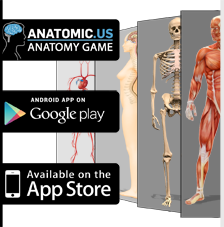Ulna
Ulna is broader at its proximal end and narrower at its distal end. At its proximal end it has a bony process, the olecranon process. It is shaped like a hook that fits into the olecranon fossa of the humerus (bone of the arm). This end also has a notch (radial notch) for the head of radius. The distal end of ulna narrows down to the styloid process of ulna. The body of ulna is made of compact bone and has the medullary cavity (contains bone marrow).
Ulna may be fractured when someone falls on the point of the elbow. The proximal end is more prone to fracture and is of following types: Hume fracture – it is the fracture of the olecranon process of ulna with a dislocation of the head of radius anteriorly. Monteggia fracture – it is the fracture of the proximal part of ulna with dislocation of radial head.
ANATOMICAL FEATURES
CLINICAL IMPORTANCE
Report Error


